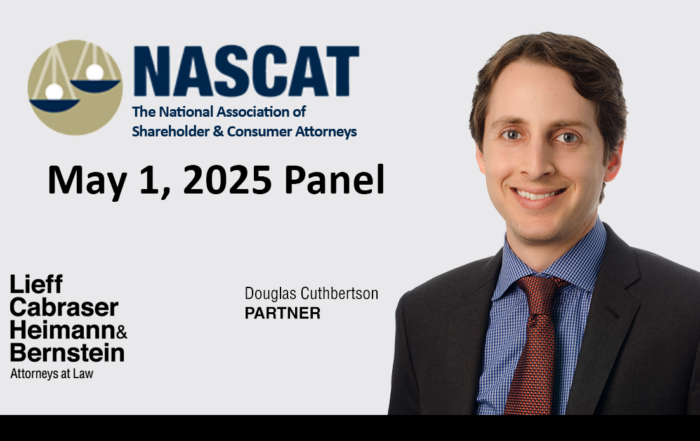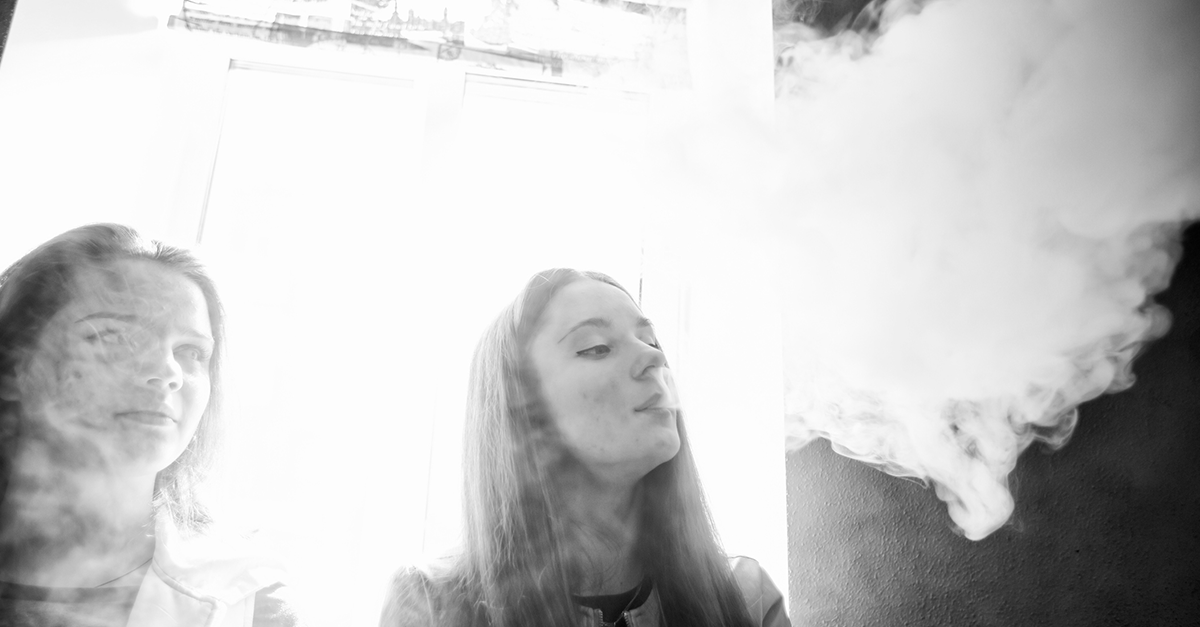Volkswagen “Clean Diesel” Emissions Fraud Litigation
Court Grants Final Approval to 3.0-Liter Class Action Settlement & Bosch Class Action Settlement
On May 17, 2017, Judge Charles M. Breyer granted final approval to the 3.0-Liter Class Action Settlement with Volkswagen valued at $1.2-$4.04 billion, and also granted final approval to a $327.5 million settlement with Bosch, the supplier of the emissions software that was installed in some 2.0-liter and 3.0-liter Volkswagen, Audi and Porsche diesel vehicles.
Full information on the settlements, including the settlement agreements, class notices, executive summaries and FAQs are posted on VWCourtSettlement.com andBoschVWSettlement.com. Class members should consult the materials on the website for explanations and assistance in recovering their benefits under the settlements. The following videos briefly summarize the options available to class members with Generation One and Generation Two vehicles. Consumers can visit VWCourtSettlement.com to enter their vehicle’s VIN to learn if they have an eligible vehicle and see their range of compensation.
Court Grants Preliminary Approval to Volkswagen, Audi & Porsche 3.0-Liter Emissions Settlement
On February 1, 2017, consumer plaintiffs and the FTC filed settlement agreements relating to affected 3.0-liter engine vehicles. If approved, the settlements will provide owners and lessees of Volkswagen, Audi and Porsche 3.0-liter diesel vehicles substantial cash compensation in addition to buybacks, trade-ins, government-approved emissions modifications or compliant repairs, depending on the generation of vehicle. Preliminary approval of the 3.0-liter vehicle settlement was granted on February 16, 2017. The court will hold a final fairness hearing to determine whether the settlement is fair, reasonable, and adequate on May 11, 2017.
Court Grants Final Approval to Volkswagen & Audi 2.0-Liter Emissions Settlement
On October 25, 2016, Judge Charles M. Breyer granted final approval to the historic $14.7 billion settlement in the Volkswagen diesel emissions case, where more than 500 federal lawsuits have been filed and consolidated into one complaint against the automaker for its “dirty diesel” vehicles.
Final Approval Hearing – October 18, 2016
On October 18, 2016, a final approval hearing was held in the Northern District of California as part of the multidistrict litigation currently being overseen by Judge Charles M. Breyer. With regard to the Volkswagen and Audi 2.0-liter engine emissions settlement, Judge Breyer informed the parties that he is “strongly inclined” to approve the settlement, but will consider the objections and issue an order by October 25, 2016. Read the October 18, 2016 Statement on the Final Approval Hearing.
Classwide Settlement Receives Preliminary Approval
On July 26, 2016, Judge Charles Breyer granted preliminary approval to the $14.7 billion settlement in the Volkswagen diesel emissions case.
Classwide Settlement Filed
On June 28, 2016, a class-wide settlement was filed by the consumer plaintiffs in the Volkswagen “Clean Diesel” Marketing, Sales Practices, and Products Liability Litigation that will provide owners and lessees of Volkswagen and Audi 2.0-liter diesel vehicles with substantial compensation through buybacks and lease terminations, government-approved emissions modifications, and cash payments, while fixing or removing these polluting vehicles from the road.
The proposed consumer settlement was filed in the Northern District of California as part of the multidistrict litigation currently being overseen by Judge Charles M. Breyer (read the Press Release relating to the Settlement, the Executive Summary of the Proposed Class Settlement Program or listen to audio of the hearing). If approved by the Court, this will be the largest consumer auto industry class action settlement in U.S. history.
Under the class action settlement agreement, Volkswagen will create a funding pool of up to $10.033 billion dollars for the class. The settlement will provide consumers the choice of:
- A Buyback or lease termination on approximately 475,000 2.0-liter diesel vehicles.
- If approved by the EPA and California Air Resources Board (or CARB), an emissions modification to ensure the vehicle no longer generates excess nitrogen oxide emissions.
Earlier in the VW Emissions Case Timeline
On September 18, 2015, the U.S. Environmental Protection Agency issued a Notice of Violation to Volkswagen relating to nearly 482,000 diesel-powered cars in the United States since 2008 sold under the VW and Audi brands (Volkswagen owns Audi) on which VW installed software that intentionally changed the vehicles’ emissions production during official testing.
VW programmed the computers in these cars to detect when they were undergoing official emissions testing. Only then did the cars turn on their full emission control systems. The controls are then turned off during actual road use, resulting in better fuel economy and performance, but producing significantly greater pollutants in violation of U.S. clean air laws.
The cars subject to the violation notice are as follows:
- Audi A3 (model years 2010-2015)
- Audi A6 Quattro (model year 2014-2016)
- Audi A7 Quattro (model year 2014-2016)
- Audi A8 (model year 2014-2016)
- Audi A8L (model year 2014-2016)
- Audi Q5 (model year 2014-2016)
- Audi Q7 (model year 2009-2016)
- Beetle (model years 2012-2015)
- Beetle Convertible (model years 2012 – 2015)
- Golf (model years 2010-2015)
- Golf SportWagen (model year 2015)
- Jetta (model years 2009-2015)
- Jetta SportWagen (model years 2009-2014)
- Passat (model years 2012-2015)
- Porsche Cayenne (model year 2013-2016)
- Touareg (model year 2009-2016)
How VW’s Deception and Fraud Concerning “Clean Diesel” Engines Harmed Consumers
Many consumers bought the VW and Audi diesel cars subject to the violation notice because they thought they were making an environmentally-sound decision, as the cars were marketed as offering high fuel efficiency while emitting low levels of smog-causing pollutants. For example, VW touted its diesel cars with slogans like, “this ain’t your daddy’s diesel, stinky, smoky, and sluggish.” Both the advertised features — superior fuel efficiency and low pollutant levels — are now in doubt, potentially significantly reducing the resale or trade-in value of the cars.
The EPA states that the VW and Audi diesel cars on the violation notice emit up to 40x the national standard for nitrogen oxide, or NOx, which diesel engines emit more than gasoline engines. Nitrogen oxide is linked to respiratory problems, including asthma, bronchitis, and emphysema.
VW has not revealed how it will fix the cars. It is believed that VW will most likely reprogram the onboard computers to restore the full emissions control systems during all driving conditions. However, “the only way to reprogram the engine to get NOx emissions to acceptable levels will be to reduce engine power and torque,” states automotive writer Bill Visnic. “That means on-the-road performance will be compromised. The reprogramming could mean that the diesel engines’ outstanding fuel economy -– the primary reason most people buy a diesel –- also will be reduced.”
As reported by the New York Times, “whatever the technological solution, it will most likely mean reducing performance, driveability, or fuel economy of the cars to meet emission goals.”
Nationwide VW Emission Class Action Lawsuits Filed
Lieff Cabraser represents Audi and VW owners in class action lawsuits filed in federal courts in several states.
At the heart of the complaints is the charge that for over six years VW intentionally and systematically cheated its customers, lied to the government, and misled the public about the efficacy of its four-cylinder diesel engine vehicles sold under the Volkswagen and Audi brands.
“VW marketed its ‘clean diesel’ vehicles as high-performing, fuel efficient, and environmentally-friendly, and consumers bought them for that combination of features,” explains attorney Elizabeth Cabraser of Lieff Cabraser. “In truth, VW’s clean diesel vehicles are anything but clean. VW sold its customers a car that doesn’t exist, and VW needs to make this right. Owners are stuck — they’re reporting that their cars are unsaleable.”
The lawsuits seek statutory penalties and compensatory, exemplary, and punitive damages for the class members -– all persons how purchased or leased the VW and Audi diesel cars on the violation notice.
The lawsuits also seek several orders, including:
- An order compelling Volkswagen to buy back the Class Vehicles on fair and equitable terms; and
- A declaration that Volkswagen must disgorge for the benefit of the class members all or part of the ill-gotten profits received from the sale or lease of the violating vehicles, and make full restitution to class members.
Civil Litigation News
Lieff Cabraser and Kaplan Gore Announce Filing of Federal Class Action Lawsuit Against Google Over the Defective Google Nest Hub, Google Nest Hub Max, Google Nest Mini, and Google Nest Audio Devices
Complaint alleges that Google induced plaintiffs and other customers to spend hundreds of dollars or more each to purchase Google Nest Hub,
Douglas Cuthbertson to Discuss “Consumer Data Privacy” at Upcoming NASCAT Annual Meeting
Lieff Cabraser partner Douglas Cuthbertson will be a featured speaker at the 2025 NASCAT annual meeting. Doug will be speaking on the
San Francisco Schools Receive Financial Boost From Settlement With JUUL
As reported by the S.F. Chronicle, the San Francisco Unified School District has been awarded a substantial $24.65














